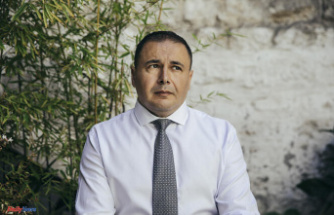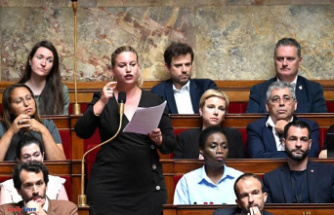After a Kansas prosecutor refused to file rape cases against the man she claimed attacked her, a Kansas woman used a 134-year old state law to convene an citizen grand jury . She said Wednesday that she was upset but not surprised by the fact that no charges were brought.
Madison Smith, 23 years old, of McPherson collected hundreds of signatures in order to appoint the grand jury. She claimed that a Bethany College student slapped her and strangled it during a sexual encounter in her dorm room. Jared Stolzenburg was sentenced after pleading guilty for aggravated battery.
Smith was informed Tuesday of the decision by the grand jury, which met Oct. 18.
Smith stated that the refusal of the grand jury to bring rape cases only reinforces society’s reluctance in dealing honestly and fairly with victims of sexual assault.
Smith stated that he was angry at people who don't see rape as it is and refuse education about it. "I was also angry at the fact that I had to take so much step that victims shouldn't have to take, and it still didn’t work out as we hoped it would."
Brent Boyer, defense attorney, stated Wednesday that he has not represented Stolzenburg in some time and declined comment to the grand jury's decision.
Kansas is one six states that allows citizens to petition grand juries. This law was adopted in 1887. Smith's case is thought to have been the first use of the law by someone alleging sexual assault.
Smith claimed that her encounter with Stolzenburg had been consensual, until he began slapping her and strangling to the point where her consciousness was lost and she was afraid he would kill her. She stated that she could not verbally withdraw her consent as she was being choked.
Smith called her own grand jury using Kansas law after Gregory Benefiel, McPherson County Attorney, declined to file charges for rape. In order to collect hundreds of signatures for petitions, she stood on the streets and shared her story with strangers. After the initial petition was rejected for technical reasons, she repeated it two more times.
Smith stated that she did not regret releasing her case despite the decision of the grand jury and hopes that it will change how victims of sexual assault are treated by law enforcement officers and society as a whole.
She said, "I'm sick and tired that people are all hush-hush regarding rape." "I wanted to raise awareness about my case and the fact that victims of sexual assault and rape don't get the justice they deserve."
Benefiel did no immediate return calls seeking comment on the grand jury's decision. He stated that sex crimes can be "extremely difficult to prosecute" as jurors are looking for "CSI type evidence".
Smith and he both believed they were seeking truth and justice, but he had different ideas about what that would look like in this particular case.
Mandy Smith, Smith's mother works at Bethany College, Lindsborg, which is about 70 miles (112.65 km) north of Wichita. She said that Smith was proud of her daughter’s resolve to speak up and highlight the poor treatment of sexual assault victims by the legal system.
Mandy Smith stated that Smith did not treat Smith with empathy or dignity. "Prosecutors don't know how to do their jobs trauma-informedly and that is a big part of the problem with these cases.... This case should help spread consent education. It should be standard across the board, but it isn't.
Justin Boardman is a former detective who trains police officers and prosecutors to investigate sexual crimes. He said that law enforcement officers and the prosecutors often speak a different language than victims of sexual assault, due to cultural biases.
He stated that law enforcement officers and the general public often ask why victims didn't scream or fight back or why they sometimes have trouble telling their stories or don’t cry. He said that all of these responses are related to the brain's response to trauma and that there is a "great gap in miscommunication" between law enforcement and victims.
Madison Smith, who graduated May, is now working as a medical assistant and applying for nursing schools. She said that she was encouraged and motivated by the support from her family, friends, and strangers throughout the process.
She said, "We tried to swing the bat as hard we could and we failed," "I had to admit that I did everything I could."












